|
When I was younger, I didn't consider myself a horror fan. But I did love science fiction, in no small part because the DC and Marvel stories I loved regularly featured science fiction elements. Then, sometime after I turned six, I began watching Star Trek at my mother's recommendation (in part, I'm sure, to move me out of comics), and its five-year mission to explore strange new worlds and going boldly where no one has gone before enthralled me. Horror didn't interest me. Keep in mind that this was the 1970s. Science fiction was everywhere. This was the era of Star Wars (without this "A New Hope" nonsense). This was the era of Close Encounters of the Third Kind. And it was the era of Alien. On its release in 1979, fans and critics hailed it as one of the scariest movies ever made. Because of its reputation, I actually didn't see Alien until I was in my teens; even Crack'd magazine's parody, which served as a guide for when audiences needed to shield their eyes (and, in the case of the chestburster sequence, their ears as well). Still, its science fiction elements piqued my curiosity. As I did with The Shining, I picked up a copy of Alan Dean Foster's novelization, which I found in one our local grocery store spinner racks, in order to dampen the potential horror elements. Like The Shining, I was wrong about it doing so, and found it only whetted my appetite to actually see the movie itself.
At the time of Alien's release, I didn't know anything about H. P. Lovecraft. I had never heard the term "cosmic horror". But the concepts the movie proffered stayed with me. As a kid weaned on the strangely compelling (if shoddily presented) television series In Search Of..., I couldn't help but find the ancient alien species far older than humanity compelling, nor could I not be existentially terrified by their use of humans as anything more than an element in their reproductive system. Moreover, H. R. Giger's art and creature designs filled me with transcendent awe, even on a crappy VHS copy on a crappier television. I tend to not like lumping horror in with science fiction. They aren't the same thing, and often I find their philosophical underpinnings mutually exclusive. And yet, when they're mixed well, the results can be unforgettable, and that's precisely the case with Alien. More than 40 years later, it remains one of the greatest science fiction horror movies ever made. What was your first science fiction horror movie? Do you have a favorite? Let me know in the comments.
0 Comments
I'm surprised that I haven't talked about Edgar Allan Poe. I tend to forget Poe because his presence is ingrained in horror fiction. His shadow touches on almost every aspect of the genre, from tales of murder and madness ("The Black Cat") to the Gothic ("The Fall of the House of Usher"), from stories of revenge ("The Cask of Amontillado") to longing for the dead ("Ligeia"). You can read his work and see the seeds that will take root throughout the rest of horror fiction. The last third of The Narrative of Arthur Gordon Pym of Nantucket veers into cosmic horror. It's hard for me to pick my own favorite, but in keeping with this series, I will spotlight "The Tell-Tale Heart". I encountered it when I was twelve, and its macabre imagery refused to let me go, even as we discussed it in my seventh-grade English class. It's a fever dream of insanity. Do you have a favorite Edgar Allan Poe story? Let me know in the comments.
David Lynch is not a horror director. He's never made a horror movie. While his movies deconstruct the very idea of narrative, they seldom show interest in different types of narrative conventions, and specifically horror conventions. None of his movies can specifically be considered vampire movies. None are haunted house movies. None are werewolf movies. That doesn't mean his work holds little interest to the horror fan or horror writer. Unease and dread run through much of his filmography, and one can make the case that the contents of his movies terrify far more effectively than most horror fare. This is in part because the masters that populate his universe are more personal than the standard pantheon of either the Universal Classic Monsters or those from Hammer Studios. Both the Experiment and the Woodsmen from Twin Peaks: The Return come from the fathomless depths of Lynch's id; both are so jarring they fill one's blood with Freon. Most horror guides point to Eraserhead as Lynch's go-to horror effort, but the first Lynch I ever encountered was Blue Velvet. It's more of a Neo-noir or psychological or erotic thriller, but it functions equally well as a horror movie. Frank Booth is one of the most psychotic characters you're likely to find outside of Patrick Bateman, while the underworld Jeffrey Beaumont enters is as surreal and uncanny as anything you'd find in the works of Clive Barker. What is your favorite David Lynch movie? How about your favorite movie that is not marketed as horror but functions as one? Let me know in the comments.
Let's talk Wes Craven. I happen to like Craven's work. He approached horror from a vastly different standpoint than most studio-driven fare. He was akin to a filmmaker like George A. Romero or David Cronenberg, who used horror as a mode of commentary. It often makes his output frustrating. Incredible ideas bubble beneath his movies, yet in many cases his movies are marred either by overacting or studio interference. This is true of even an acknowledged classic like The Serpent and the Rainbow and the underrated Shocker. With all of that out of the way, I love A Nightmare on Elm Street. It's a slasher a movie, but when I saw it at sixteen, I was blown away by the fact that a supernatural element drives it. And the concept is remarkable. There's very little more terrifying than having a dream you cannot escape; when a psychopath threatens to kill you in your own dreams, it becomes even more so. The dream sequences themselves possess a surreal quality, adding an otherworldly feel that often was lacking in horror. Nearly forty years later, A Nightmare on Elm Street has lost none of its ability to scare. It remains one of my all-time favorites.
Do you have a favorite Wes Craven movie? Let me know in the comments. I've said before that, when I was younger, I didn't consider myself a horror fan. Part of it had to do with the Satanic Panic, which seemed to crop up even among more level-headed sorts. But the key reason was that, in the 1980s, the word "horror" was synonymous with "slasher." You couldn't argue this point with anybody. Distinctions like folk horror, horror comedies, even (ugh) elevated horror simply didn't exist. It was all Freddie, Jason, and Michael, all the time. Which brings us to John Carpenter's classic Halloween. When I was a senior in high school, our English teacher brought her VCR to class so we could watch a presentation of William Shakespeare's play Macbeth (which I also should feature in this series). She got a television from the AV room and we hooked up the VCR and, seeing there was a tape inside, pressed Play. The first beats of Carpenter's iconic score came through the television's speaker, and the students in the classroom begged our teacher to let them at least watch the first kill. To my complete surprise, she acquiesced, and said, "As movies like this go, this is the best." After watching it, I had an electric buzz running through my body, as if I'd touched a live wire, and after school went to our closest video rental store to pick up a copy. Like Hitchcock's Psycho, Halloween is a movie that changed the face of horror. It is certainly the greatest slasher movie ever made, and by far one of the most (if not the most) influential. Without Halloween, you have no Friday the 13th. You have no The Burning. Or Pieces. Or Night School. Or Slumber Party Massacre. Or literally a hundred others. There are sequels. There are remakes. There are at least two soft reboots. All have their moments, even though some elaborate on an unnecessary mythology. The current series is enjoyable. I like both Halloween (2018) and Halloween Kills, and I'm hoping for good things with Halloween Ends. Still, none of these really stand with Carpenter's original. It remains one of the best of all time. What is your favorite slasher movie? If you love the franchise, what is your favorite Halloween movie? Let me know in the comments.
I Am Legend by Richard Matheson is one of my favorite novels. It's a post-apocalyptic story about the last human on an Earth overrun by vampires. Even today, it remains a relevant, striking story, with spare prose underlying the tale's sense of urgency. And the ending still packs a punch--not surprising, given Matheson's work on several of the best Twilight Zone episodes. It's a novel I recommend unreservedly. There are three movie versions: The Last Man on Earth (1964), The Omega Man (1971), and I Am Legend (2007). While each has its merits, none capture the novel's paranoia and anxiety. Do you have a favorite post-apocalyptic novel? How about a favorite Matheson novel? Let me know in the comments.
Yesterday I wrote a few words about Dario Argento, referred to in some circles as the Italian Alfred Hitchcock. This allows me to segue to Hitch and his seminal 1960 movie Psycho. It's impossible to overstate the movie's influence. It's a movie that changed everything; not only did it set the stage for what we consider to be the modern thriller, it also laid the groundwork for the slasher movie. You can see seeds of it in Bob Clark's Black Christmas, and full flowering with movies like John Carpenter's Halloween, Friday the 13th, The Burning, and more than a hundred others. It's based on a 1959 novel by Robert Bloch. While there are a few minor differences, the novel is as much required reading for horror fans as the movie is required viewing. What is your favorite proto-slasher movie? What is your favorite Alfred Hitchcock movie? Let me know in the comments.
Today is Dario Argento's 82nd birthday, which is a perfect time time to mention one of my favorite movies for my Origins of My Love of Horror series: Deep Red (Profondo Rosso). A classic giallo, Argento's fifth picture is a highly stylized murder mystery that sees the master filmmaker pulling out all the stops, including psychics reading the mind of a murderer, a jazz musician involved in a deadly game of cat-and-mouse on the streets of Rome, a daring reporter following a story into dangerous territory, and a revelation that is as insane as it is flabbergasting. It's notable for its incredible visuals, its great sense of tension, and a magnificent soundtrack by Goblin. It's an influential film as well, informing not only John Carpenter's Halloween (1978) but indeed much of the slasher genre of the 1970s and 1980s. While a case can be made for Suspiria (1977) being Argento's best movie, I personally prefer Profondo Rosso for its daring and invention while still maintaining the narrative structure of a thriller. If Suspiria is like What is your favorite Dario Argento movie? What is your favorite giallo? Let me know in the comments.
For this entry in the Origins of My Love of Horror series, I'm posting this interview I conducted with Peter Straub, who passed away yesterday. Straub was one of the key writers who made me want to be a writer. Indeed, I was probably conscious of him at least since my early teens, when I initially read his seminal Ghost Story. Since then, I've tried to read every release, be it his subtle short fiction or his breathtaking novels. He was a writer I could actually say never wrote a bad work. I had the pleasure of interviewing Straub for Revolution SF in 2008 or 2009, with the publication of his novel A Dark Matter. The interview appears to have disappeared down the Internet's memory hole, so I am reposting it here. A Dark Interview: a Q&A with Peter Straub Your latest novel, A Dark Matter, is your first overtly horrific novel since Mr. X, or perhaps even Floating Dragon. Was it inspired in any way by your editing work on Poe’s Children and the two-volume American Fantastic Tales? It’s a sensible question, but I think the answer is no. I worked on A Dark Matter for about five years, and it was planned out – sort of – before I began to assemble the anthologies. The novel was supposed to be a novella, but it overflowed its banks. As with Julia and Ghost Story, A Dark Matter deals with the unfinished business of the past returning to haunt the present. What draws you to this theme? As far as I can see, the past always haunts the present, everybody’s present. We walk around inside invisible cocoons made up of opinions, responses, viewpoints, stances, and assumptions given us by our childhoods and our parents, and generally speaking, we are conscious of none of this material. A meeting between any two people involves the inevitable misreadings and bad judgments produced by the collision of two different scripts. Besides that, decisive actions follow us throughout our lives and affect us, drive our behavior, in ways we seldom understand or even grasp. The past is an indelible part of the present. A Dark Matter also saw publication as The Skylark by Subterranean Press. You’ve also had your short story collection 5 Stories and Sides, your book of criticism, published by Borderlands Press and Cemetery Dance Publications. What for you are the benefits of publishing through the small press houses? I like small presses a lot. They are willing to accept projects my trade publishers would not wish to bring out, books that would strike them as too small, too limited in appeal, or too eccentric. Also, small publishers often produce strikingly beautiful books, and it’s always nice to have a really handsome new book to put on the shelf. Have you seen the graphic adaptation of The Talisman? If so, what are your thoughts on it? I’ve been reading it in all stages as it moves along. It seems to be to be doing an excellent of condensing and presenting the story without leaving out anything important, and I’ve been enjoying it. Do you read graphic novels at all? If so, what titles do you read? I began reading graphic novels with The Sandman in the eighties. Since then, I’ve read all the John Constantine and Preacher books. Seth is one of my favorites, and so is Chester Brown. Dave Sim is in a class by himself. What writers do read these days? Are there any particular genre authors you see as rising stars?
Joe Hill is certainly on the rise, isn’t he? Daryl Gregory and Chris Barzack are doing very good work, too. Otherwise, I read Kelly Link, Donald Harington, James Ellroy, Michael Connelly, Elizabeth Hand, John Crowley, Tim Powers, people like that, who turn the idea of genre into a rifle-range target. Today in the Origins of My Love of Horror, I talk about the book and movie encapsulating everything I think of when I think of horror. First, some context, I saw the trailer for Stanley Kubrick's adaptation of Stephen King's novel The Shining in 1980. Some friends and I sat in a theater waiting for the beginning of a comedy. Suddenly, this terrifying trailer began. I knew nothing of Kubrick, or King, and had never heard of the novel. I can't remember a single thing about the comedy we saw, but I remember exactly my thought processes as the trailer ran. Needless to say, while my other friends seemed ready to see it almost immediately, my own feeling was that it was a movie I could almost guarantee I wouldn't see, and made the decision to read the book instead, making the argument that there was no way the book was going to be as scary as the movie, much less as the trailer we just watched. Yeah, I got that one wrong. I fell in love with the book over the summer and fall. And, a few years later, I rented the movie from Blockbuster, and fell in love again. Adaptations of movies often are different from their source material, of course--what works on the page won't necessarily work on screen--and this is especially true of The Shining. (King has gone on record as disliking Kubrick's movie.) Even this early in his career, King's focus never strayed from the characters, while Kubrick appeared far more fascinated by the story's concepts and ideas. In King's novel, fate is not set, and is a consequence of our actions; in the world of Kubrick's movie, past, present, and future are determined, and none of the characters can escape. You can see this in the messages Tony sends Danny throughout the movie; everything Danny sees from the very beginning comes to pass. In 1997, ABC-TV aired a miniseries based on the novel. Directed by Mick Garris from a teleplay written by King, its fidelity to the source material is much higher, taking fewer artistic, narrative, and philosophical liberties. The miniseries is quite good in its own right, and is worth seeking out, though has never quite engaged me as much as either King's masterful novel or Kubrick's incredible adaptation. What is your favorite book-to-screen adaptation? Let me know in the comments.
|
Derek Austin Johnson has lived most of his life in the Lone Star State. His work has appeared in The Horror Zine, Rayguns Over Texas!, Horror U.S.A.: Texas, Campfire Macabre, The Dread Machine, and Generation X-ed.
He lives in Central Texas. Archives
August 2023
Categories |
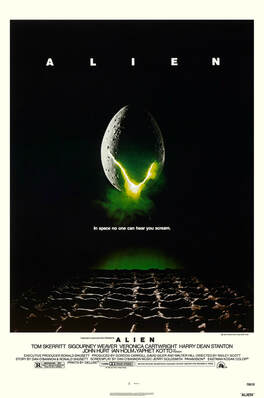
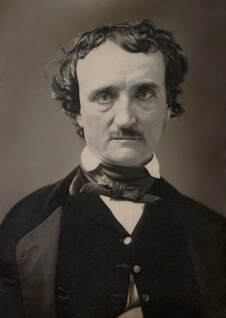
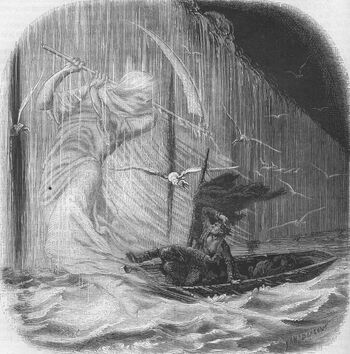
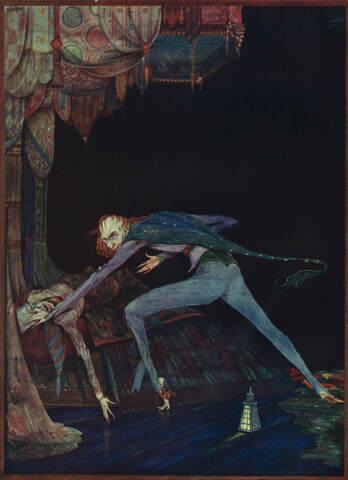
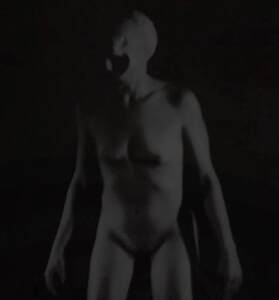
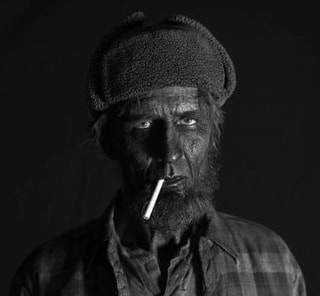
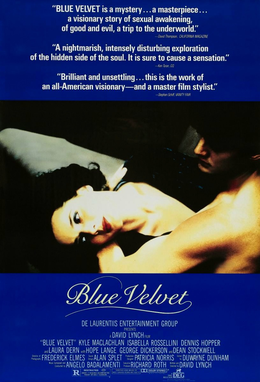
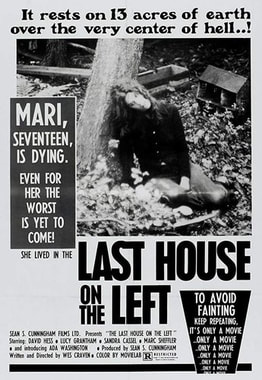
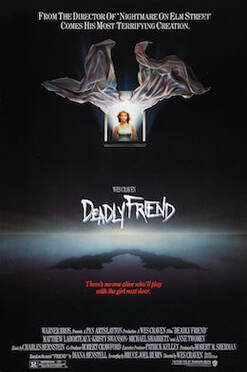
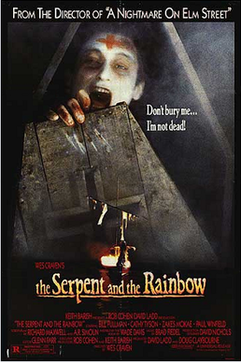
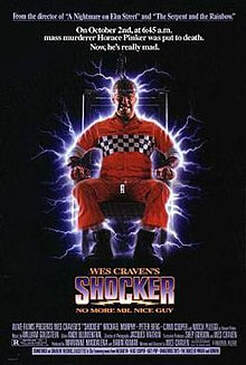
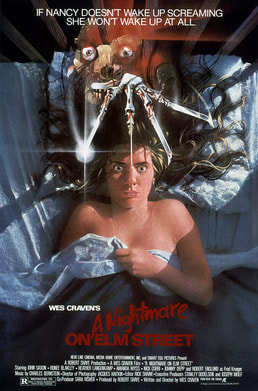
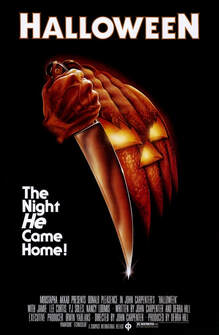
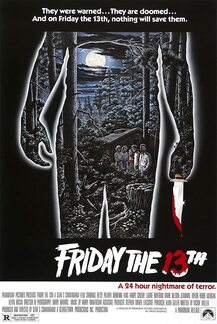
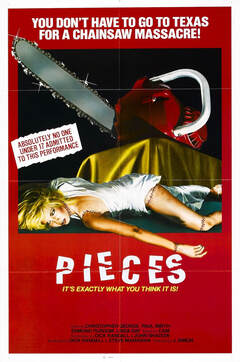
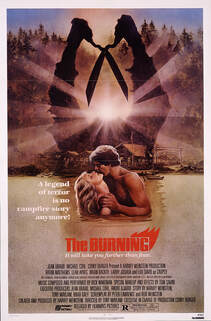
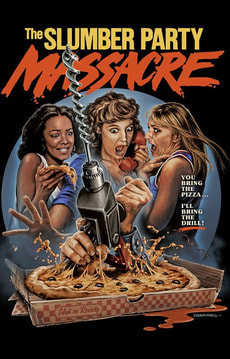
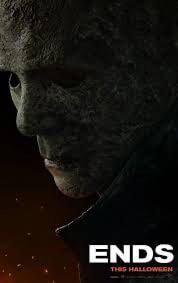
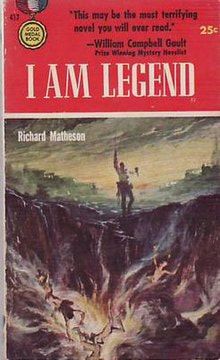
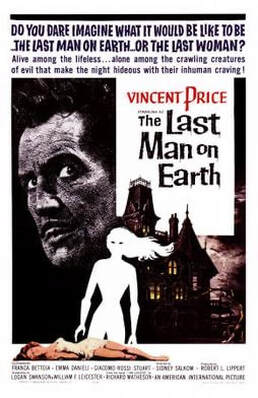
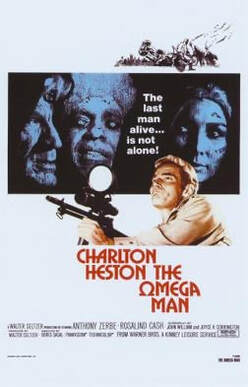
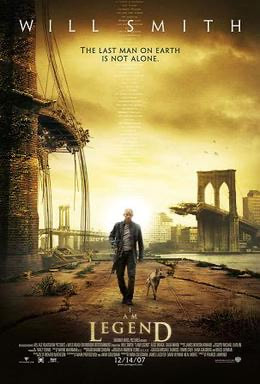
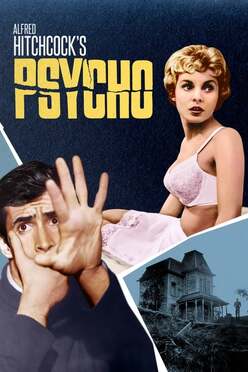
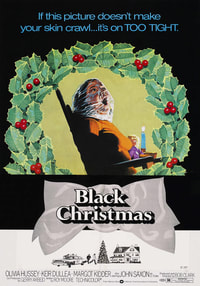
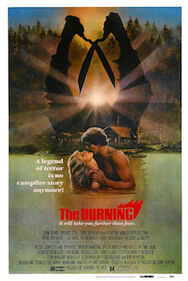
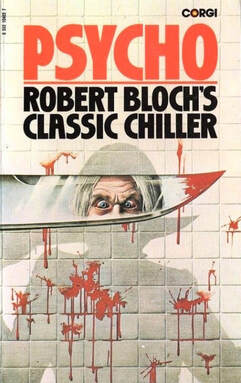
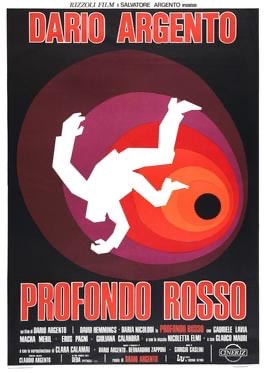
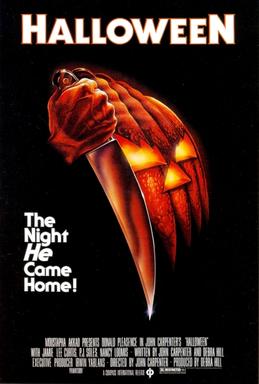
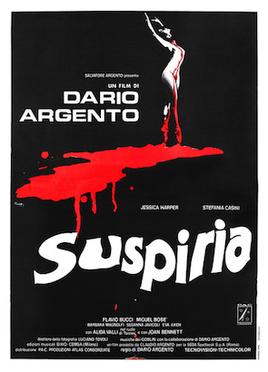
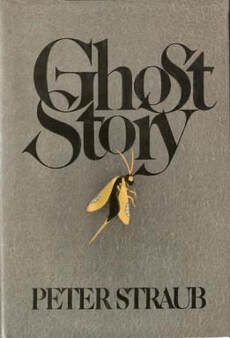
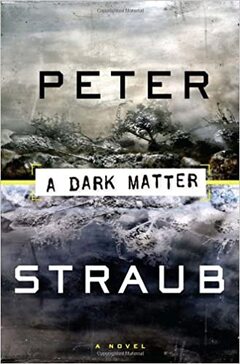
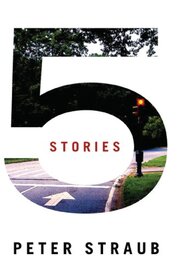
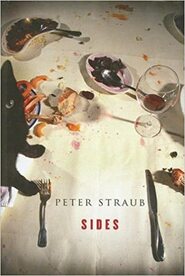
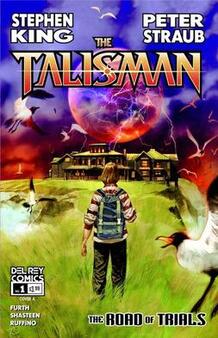
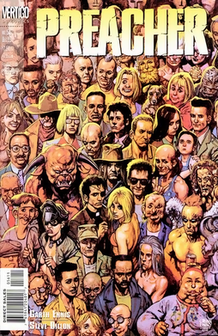
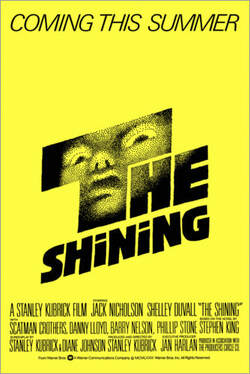
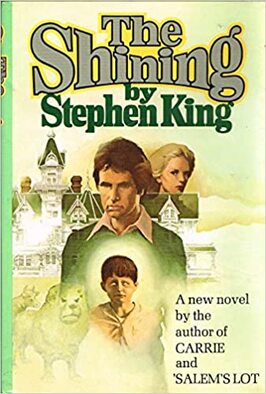
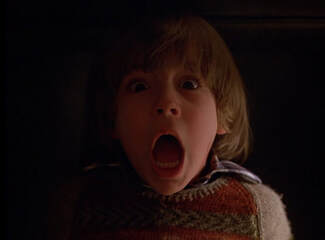
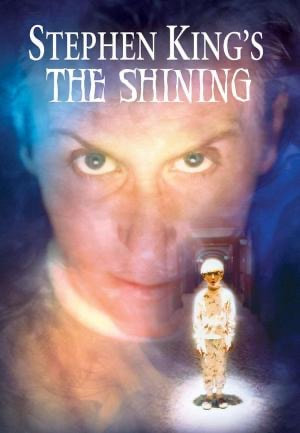
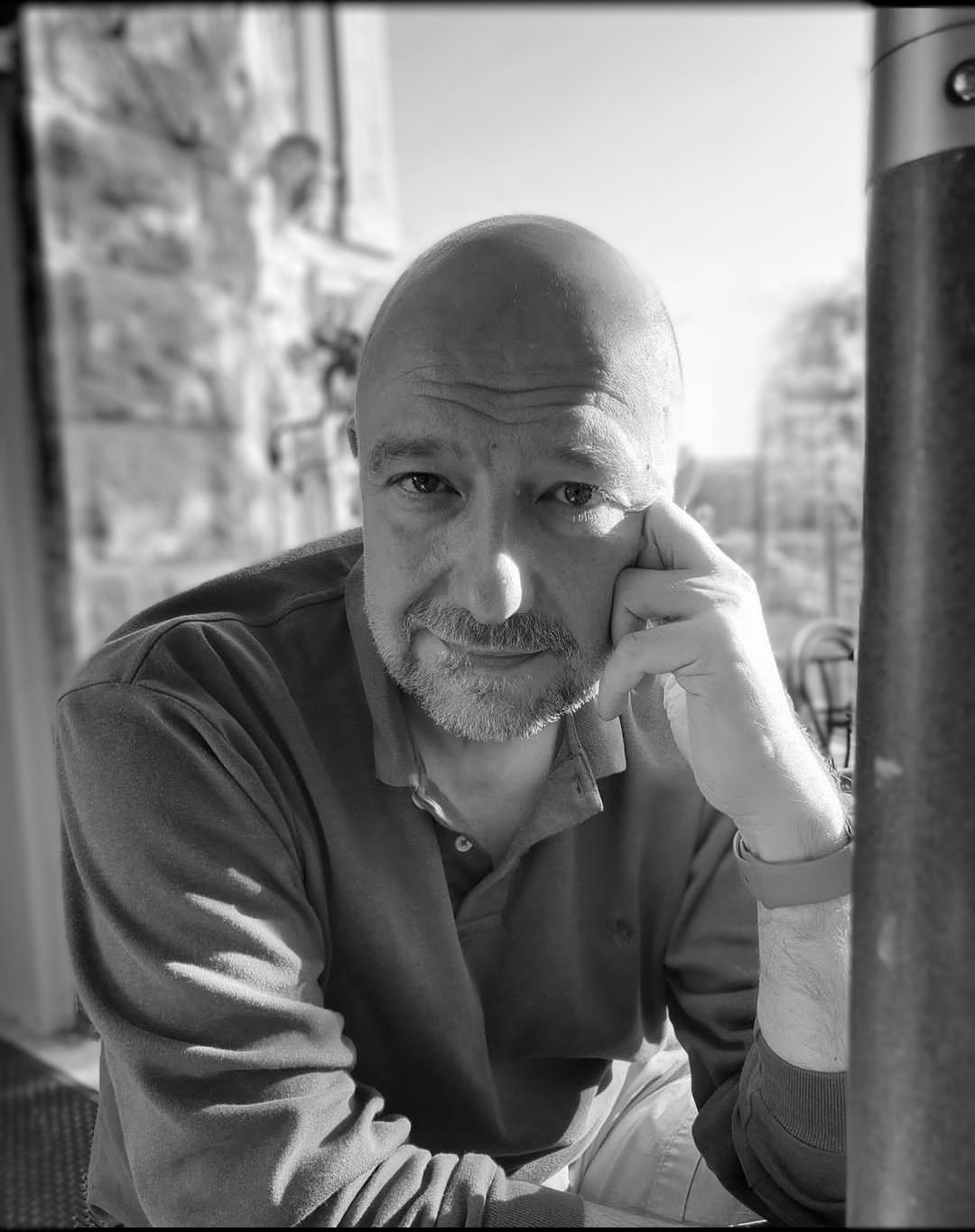
 RSS Feed
RSS Feed